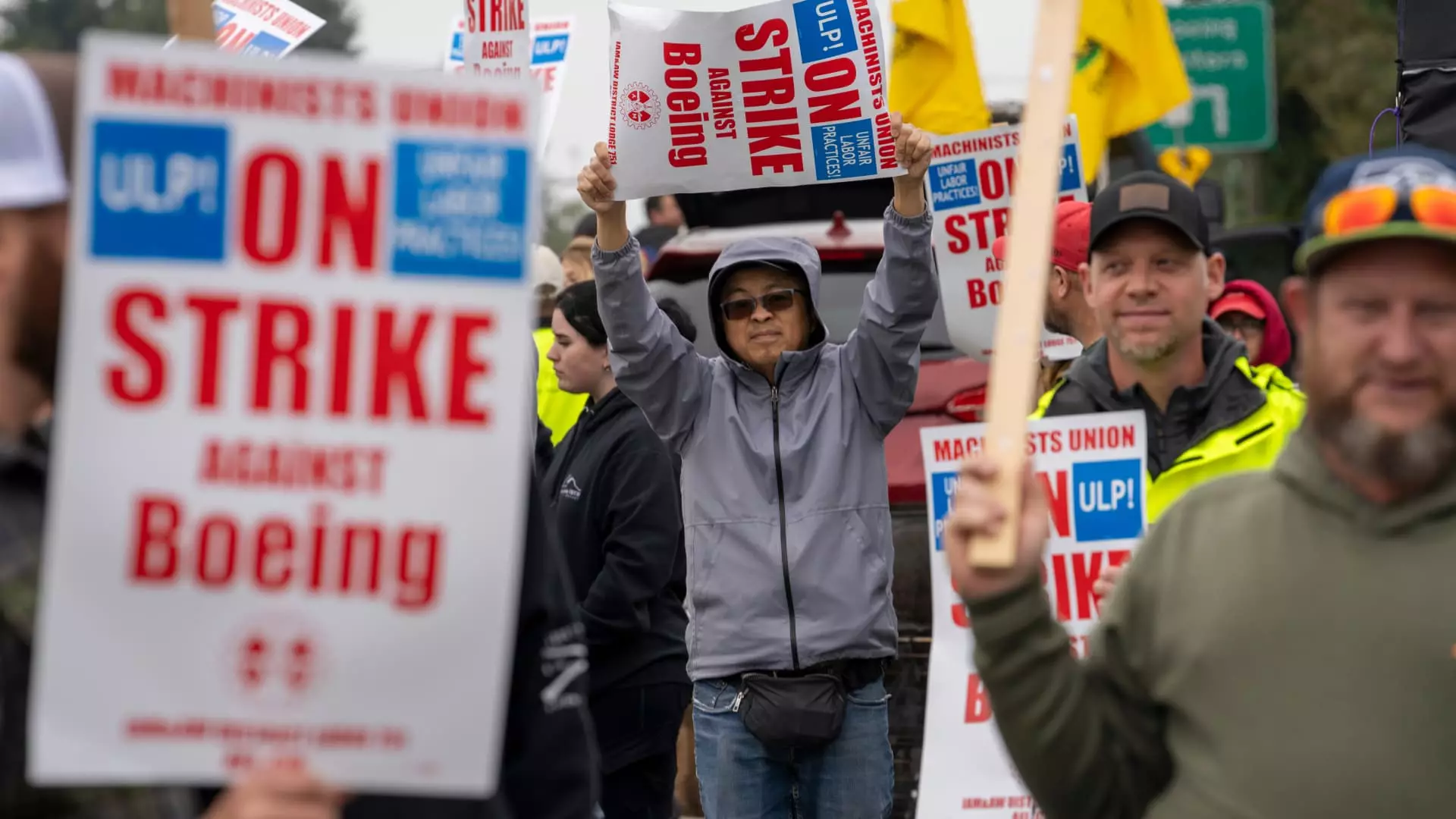In a significant escalation of labor tensions, Boeing recently withdrew its contract offer to approximately 33,000 machinists who have been on strike since mid-September. This strike began on September 13, when union members, associated with the International Association of Machinists and Aerospace Workers, overwhelmingly rejected a tentative labor deal that was designed to improve their working conditions and benefits. The rejection catalyzed the halt in production across most of Boeing’s manufacturing sites located in the Puget Sound region—a setback that has far-reaching implications not only for Boeing but for the broader aerospace industry.
Negotiation Dynamics and Union Responses
Following the initial breakdown in negotiations, Boeing attempted to revive discussions with a revised proposal that included higher pay raises, a ratification bonus, and other enhancements. However, the union deemed these offers inadequate, arguing that they were not part of a meaningful negotiation process. According to union representatives, Boeing’s refusal to address essential concerns regarding wages, retirement plans, and vacation or sick leave remains a significant sticking point. The tension intensified this week when talks collapsed again, leading to an indefinite continuation of the strike.
Union leaders have expressed frustration at Boeing’s approach, claiming that the demands on the table are reasonable and essential for the workers’ welfare. The perception is that Boeing is not engaging seriously with the union’s requests, leading to claims that the company is prioritizing its competitive positioning over the needs of its labor force. This ongoing conflict raises critical questions about labor relations in the aerospace sector, as it reflects broader issues of worker rights, corporate responsibility, and economic stability.
The financial implications of this strike are substantial. According to S&P Global Ratings, Boeing’s production halt could inflict damages exceeding $1 billion per month. This staggering figure underlines the potential long-term consequences of a protracted labor dispute, which may not only affect the company’s bottom line but also impact its credit ratings and investor confidence. Stephanie Pope, the CEO of Boeing’s commercial aircraft unit, acknowledged the strain, indicating that the company’s recent proposals were meant to foster competitiveness in a challenging market. Nevertheless, the insistence on non-negotiable demands from the union complicates the resolution process.
Boeing’s predicament is emblematic of the struggles many corporations face today, as they balance operational demands with employee needs in an environment still shaken by the pandemic’s economic fallout. The machinations of this labor dispute could very well set a precedent for how similar conflicts are addressed in the future.
As the strike continues, both Boeing and the union must recalibrate their strategies to foster a conducive dialogue. For Boeing, it may mean reassessing its operational capabilities and recognizing the value of its workforce beyond mere economic metrics. For the union, it involves striking a balance between holding firm on essential worker rights and engaging in a pragmatic approach to negotiations.
Ultimately, the resolution of this strike will require goodwill and a commitment to finding common ground. Only through open communication and an understanding of each party’s stakes can they navigate this challenging impasse. The outcome of this situation could reshape not just Boeing’s future but also the landscape of labor relations within the aerospace industry.


Leave a Reply